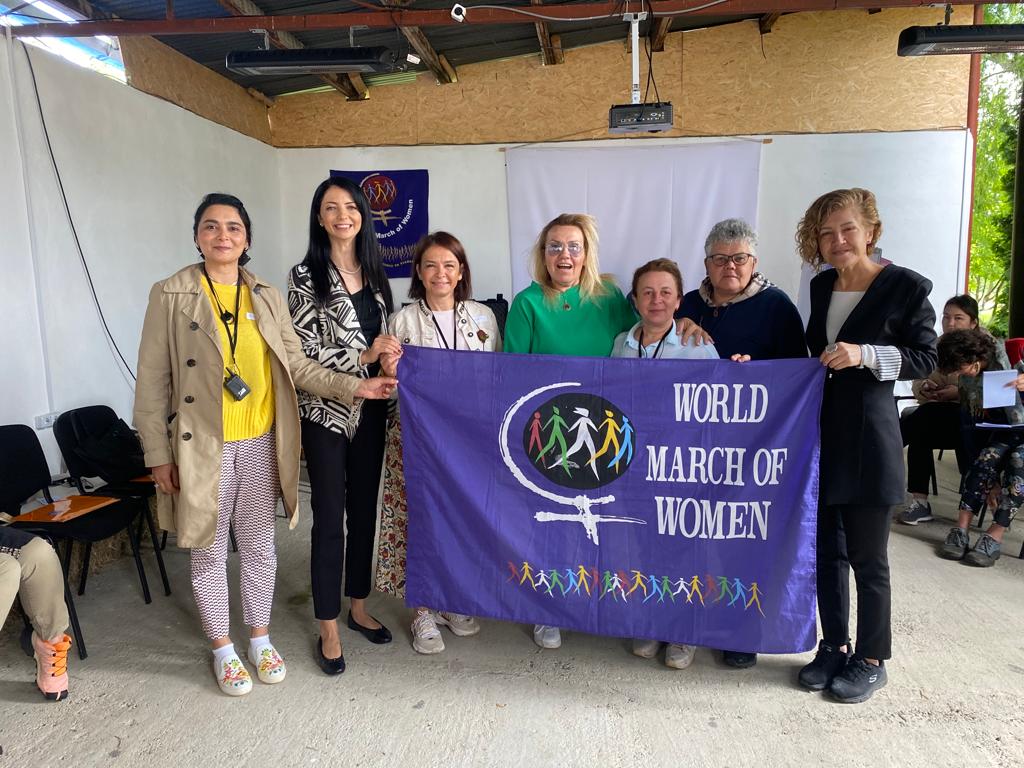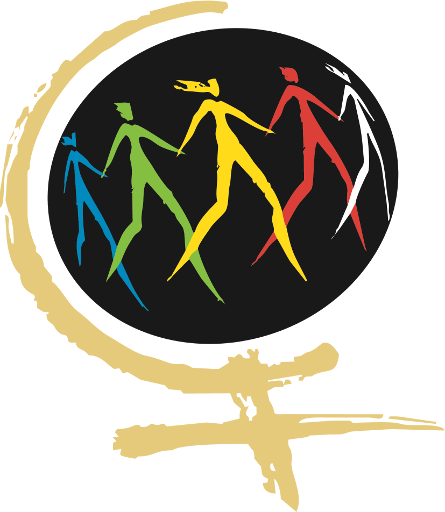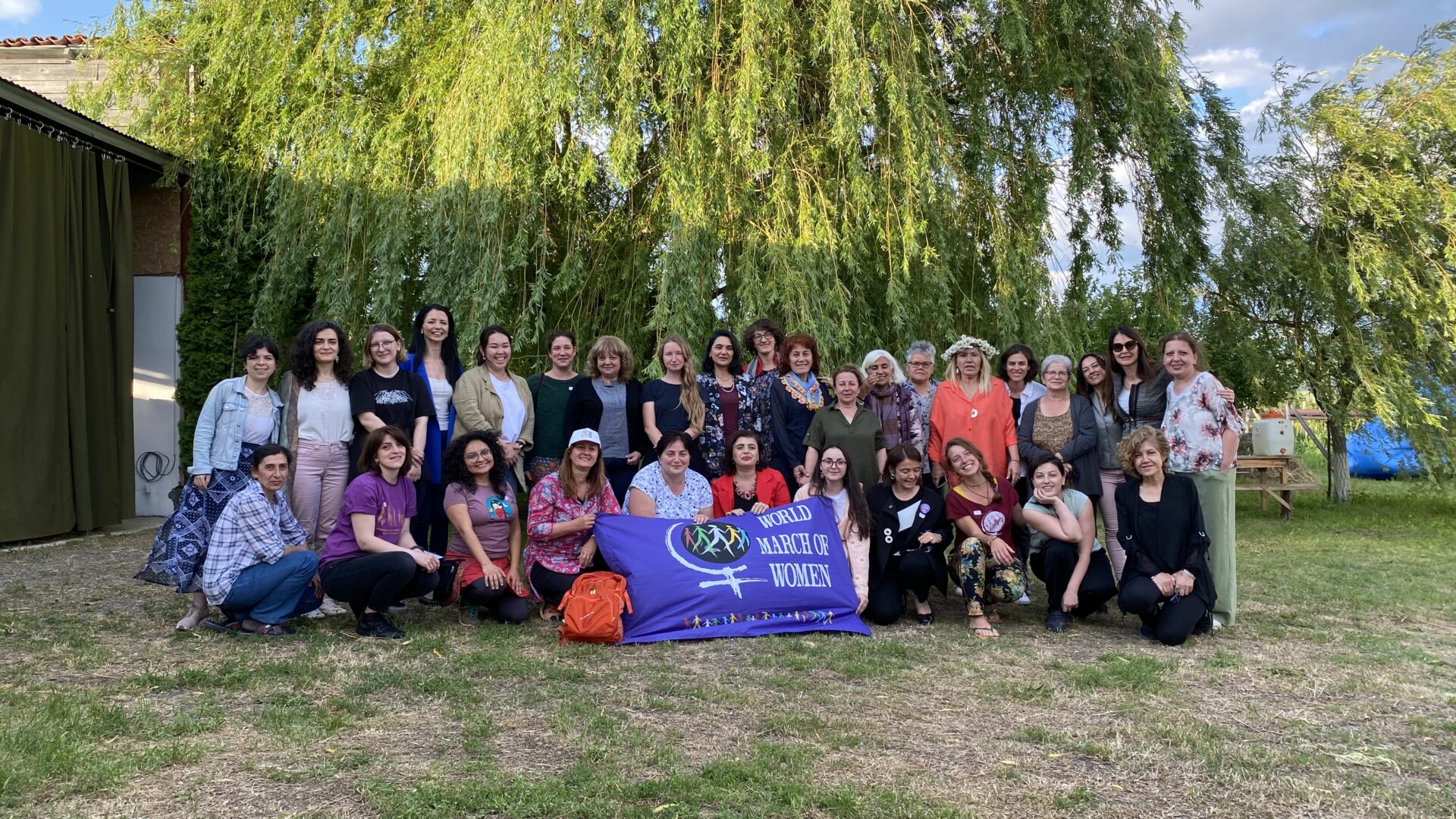June 6-9, our training titled” Together We are Building a Feminist Economy” took place at the farm of our host organization Elkana in Georgia. The training, which brought together women from Egypt, Iran, Georgia, Turkey, Moldova, Poland, Brazil, Mexico and Macedonia working in various fields of feminist economics, continued for three days with discussions and experience transfers on multiple topics.
The main issue of the training was putting forward a feminist economics theme based on the sustainability of life and food sovereignty. All participants shared the need for a feminist economy as an alternative to the mainstream capitalist economic system and expressed their determination to advance this organizing process in the region.
On the first day of the training, women from different parts of the world settled in Mystika, which took place after the introductory speech made by Mariam Gaprindashvili, a member of the WMW international secretariat, according to the locations of their countries on the map. Once again, even though we were physically in different parts of the world, we felt the power of feminism to bring us together and to be together.
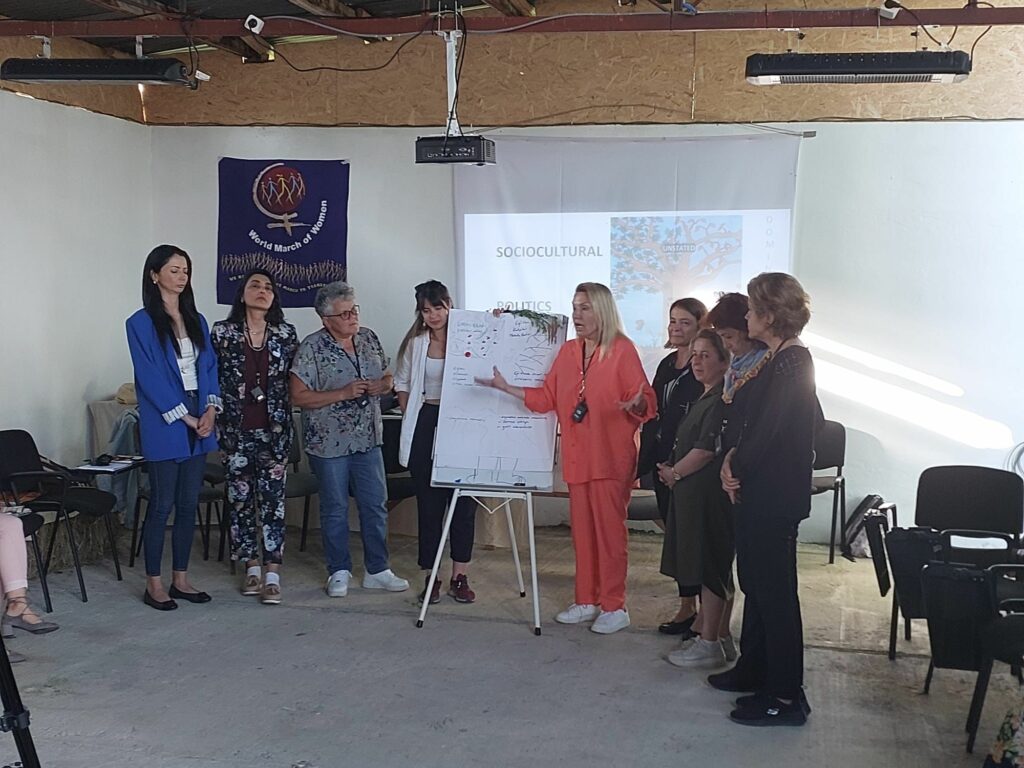
After the meeting, Mariami Jorjadze, director of Elkana, welcomed the participants and stated that they were happy to support women’s activities in agriculture with such an event and ensure the development of these activities, and Jorjadze continued her words; “I am pleased that we are here as women. Without women, peace will not come, and we will not be able to develop; this is my basic understanding. I see all your radiance and power, which was felt here during Mystika.”
After Jorjadze, Yildiz Temürturkan, the International Coordinator of the World March of Women, spoke about the importance of the development and progress of the feminist movement from the grassroots. Emphasizing that the expansion and development of the World Women’s March by meeting with grassroots groups in new regions is fascinating, Temürtürkan continued her words, “As WMW, we are not only fighting against poverty and violence. At the same time, we are fighting against the system that caused all our experiences. While continuing this struggle, on the one hand, we are developing new strategies and alternatives to deal with this problem.” they said.
During our education, we often use grassroots feminism, agroecology, feminist economics, etc., by discussing the correspondences and meanings of the basic concepts in different countries and experiences; she continued with experience transfers about the tools used in different contexts and countries within the scope of feminist economics.
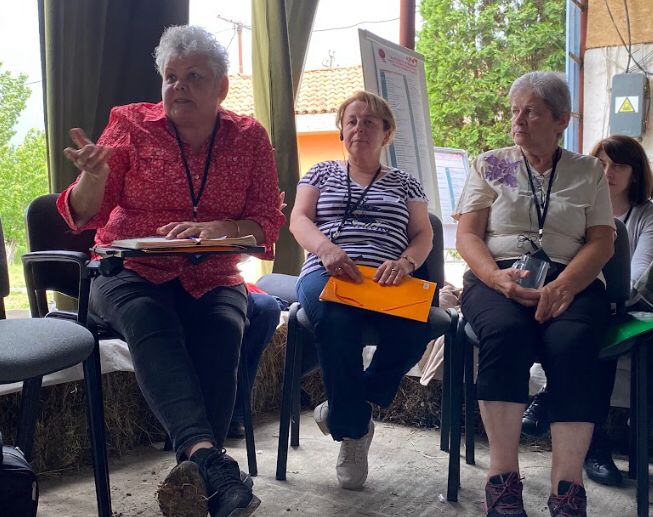
The second day of our training, titled” We are Building a Feminist Economy Together,” started with the presentation of the products of our participants from different countries, which are their productions and the seeds they brought from their regions.
In the first session, our topic was “Feminism and Agroecology from the Grassroots.” The session, “What does seed sovereignty mean to you?” started with the question. During the session, women farmers shared how traditional systems have changed and their methods to protect seeds within their cooperatives. At the end of the session, Tea from Elkana Farm introduced the farm to the participants, accompanied by a tour after giving information about the seeds they use on the farm.
The second session’s topic was “Food Sovereignty and Agroecological Practices.” The session discussed how agroecology affects the environment and its positive effects on climate change. Local producers from Georgia Natalie, Inga and Natia presented their products and production processes with their presentations.
In the third and last session, women’s access to land and agricultural policies were mentioned. During the session, it was pointed out that gender equality in women’s access to land is still taboo. Hala from Egypt pointed out that before discussing the concept of food sovereignty with the discussion she led, we should thoroughly understand what it is, we can build our active actions in this direction when the time comes, but first, we need to learn and teach the concept correctly.
The third day of the training started with Mystika, which was performed as a memorial with the guidance of Atiye from Hatay, and those who were lost in the earthquake were commemorated with a special ritual. The first session was held after discussing Mystika, cooperation, and being a woman in cooperatives. The second session continued with the training given by Inga from Georgia about medicinal herbs. The training ended with the cheese workshop and the general evaluation of the information learned in the event afterwards.
